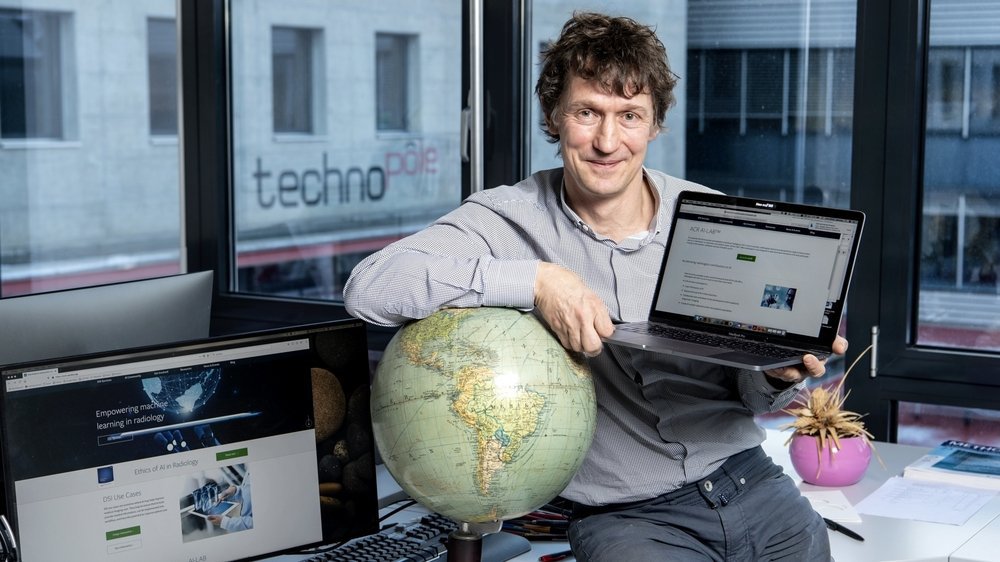

Henning Müller may be a specialist in medical informatics and artificial intelligence, but he also appreciates things that work without algorithms. Proof of this is the good old globe on his desk in the Techno-Pôle de Sierre.
He grasps it, then puts his finger on the United States. This is no coincidence. Because in the course of his career, the head of the e-Health Unit at the Institute for Research in Management Information Technology at the HES-SO Valais-Wallis has forged many links with the country of Uncle Sam. So much so that since April 2020, his team of researchers has been collaborating with the American College of Radiology (ACR) to develop an artificial intelligence platform designed to facilitate patient care and monitoring.
Democratising artificial intelligence
"Using algorithms, this platform mobilises a large amount of data in order to improve both the diagnosis of a disease and medical decision-making", summarises Henning Müller.
But the main feature of this tool, created by the ACR two years ago, is elsewhere. "The idea is to democratise artificial intelligence among radiologists", says Professor UAS. Thus, the platform allows radiologists in a hospital to create their own algorithm models by collecting data from their patients, and then to test them to meet their clinical needs. "These models of clinical situations, which are anonymous in order to protect the identity of patients, can then be shared with other institutions. The ultimate goal is to develop a huge library of models based on medical data".
Improving the understanding of algorithms
The platform is currently being tested in more than a dozen establishments in the United States. For its part, and via the contract signed with the American association, Professor Müller's team is responsible for continuing the development of this tool and improving the "interpretability" of the algorithms. In other words, researchers in the Valais must make the decision-making process more readable and comprehensible.
"How does an algorithm come to the conclusion that a patient has a stage 3 tumour? Why does it recommend one treatment over another? These are all questions that radiologists ask themselves and to which we have to provide answers," says Henning Müller. He points out that his team can draw on the skills of a former RCF researcher working in Sierre under this contract with the HES-SO Valais-Wallis.
No hospital trials in Switzerland yet
The development of artificial intelligence in the field of medical imaging has been taking shape for almost a decade. Despite this hindsight and years of research, Henning Müller concedes that not all algorithms are yet perfect. "But confidence in these technologies is increasingly important. It is not for nothing that this platform was developed by radiologists, for radiologists".
He reminds us that in any case, it is the experience and expertise of the specialist physician that takes precedence over algorithms. "These tools are a valuable aid to decision making."
Although the platform has been presented at the universities of Geneva and Lausanne, it has not yet been integrated into Swiss hospitals. However, Henning Müller is hopeful that this will be the case one day.
